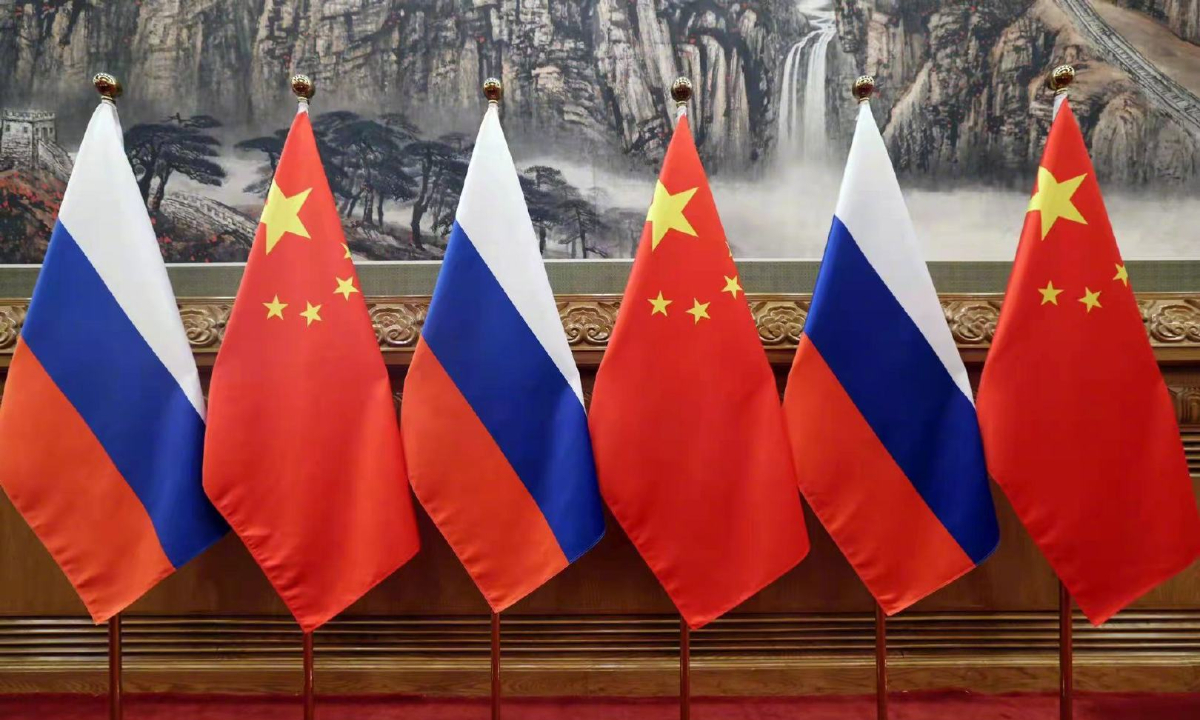
Photo:Xinhua
On Friday, Chinese President Xi Jinping held talks via video link with Russian President Vladimir Putin, during which they exchanged views on the China-Russia bilateral relations and the most pressing regional problems. As the world enters 2023 soon, this signals a good start for the ties between Beijing and Moscow in the coming new year.
The global geopolitical landscape is becoming more complex and seeing great changes. After the Russia-Ukraine conflict, the US and Europe have imposed severe sanctions against Russia, even threatening to sanction Beijing if it supports Moscow. Meanwhile, Washington and its allies have continued to view Beijing as a growing threat to them and enhanced their hostility toward it.
Since the outbreak of the Russia-Ukraine conflict, various opinions about how it will impact the ties between China and Russia have emerged. Some external voices argued that Beijing and Moscow are "edging toward an alliance," while some claimed that the two countries' "no limits" partnership does have some limits.
Moreover, for many years, the West has been trying to disrupt the normal development of the China-Russia relationship. Such efforts were enhanced after the conflict between Moscow and Kiev broke out. Western public opinion has been criticizing China for not condemning Russia directly. It also states that China's "lukewarm support" to Russia undermines Beijing's interests, attempting to separate China from Russia.
But all these disruptions didn't hinder the China-Russia comprehensive strategic partnership of coordination for a new era.
Looking back at the development of China-Russia relations in 2022, the bilateral interaction between the two sides remained active and frequent. Beijing and Moscow held several high-level meetings this year. In particular, the top leaders of the two countries have met and talked multiple times through different means about their bilateral relations as well as regional and international issues.
In 2022, China and Russia have been steadily promoting pragmatic bilateral cooperation. In areas such as trade and economic cooperation, energy cooperation, and infrastructure construction, the two countries have achieved success: The bilateral trade is approaching $200 billion, major investment projects are well underway, the scale of local currency settlement further expands, and the Heihe highway bridge and Tongjiang railway bridge are open to traffic.
Under the framework of multilateral organizations, including the BRICS and the Shanghai Cooperation Organisation, China and Russia have made great efforts to push for the conjugation of the China-proposed Belt and Road Initiative and the Russia-led Eurasian Economic Union. Regarding security, the China-Russia joint military exercises were carried out as planned, despite baseless and irrational accusations and suspicions from the West.
The strategic cooperation between Russia and China is a natural product of history. It meets the needs of the two countries and the current international situation. For China, developing its relationship with Russia is a pragmatic choice.
In addition, China and Russia are both against the US' abuse of its hegemony and the revival of Cold War mentality in the West. In solidarity with other nations, the two countries have steadfastly promoted multipolarity and greater democratization of international relations. They have also firmly opposed hegemonism and rejected the new Cold War provoked by the West.
In a changing world, it is important for major powers to have the wisdom to safeguard their own interests and the responsibility to secure the interests of mankind. The strategic partnership between China and Russia is crucial for promoting stability, peace, and security in our region. As two major countries, China and Russia can also play a very constructive role in maintaining global order and justice.
As Chinese State Councilor and Foreign Minister Wang Yi said on December 25th during a symposium on the international situation and China's foreign relations, the China-Russia relationship, which is based on non-alliance, non-confrontation and non-targeting of any third party, remains rock-solid. Such relations are free from interference or any attempt to sow discord between the two countries and immune from changes in the international environment. It is expected that China-Russia ties will continue to develop further and steadily in the coming 2023, bringing more prosperity and stability to the world.
The article was compiled by the Global Times based on an interview with Yang Jin, an associate research fellow at the Institute of Russian, Eastern European and Central Asian Studies at the Chinese Academy of Social Sciences. opinion@globaltimes.com.cn




